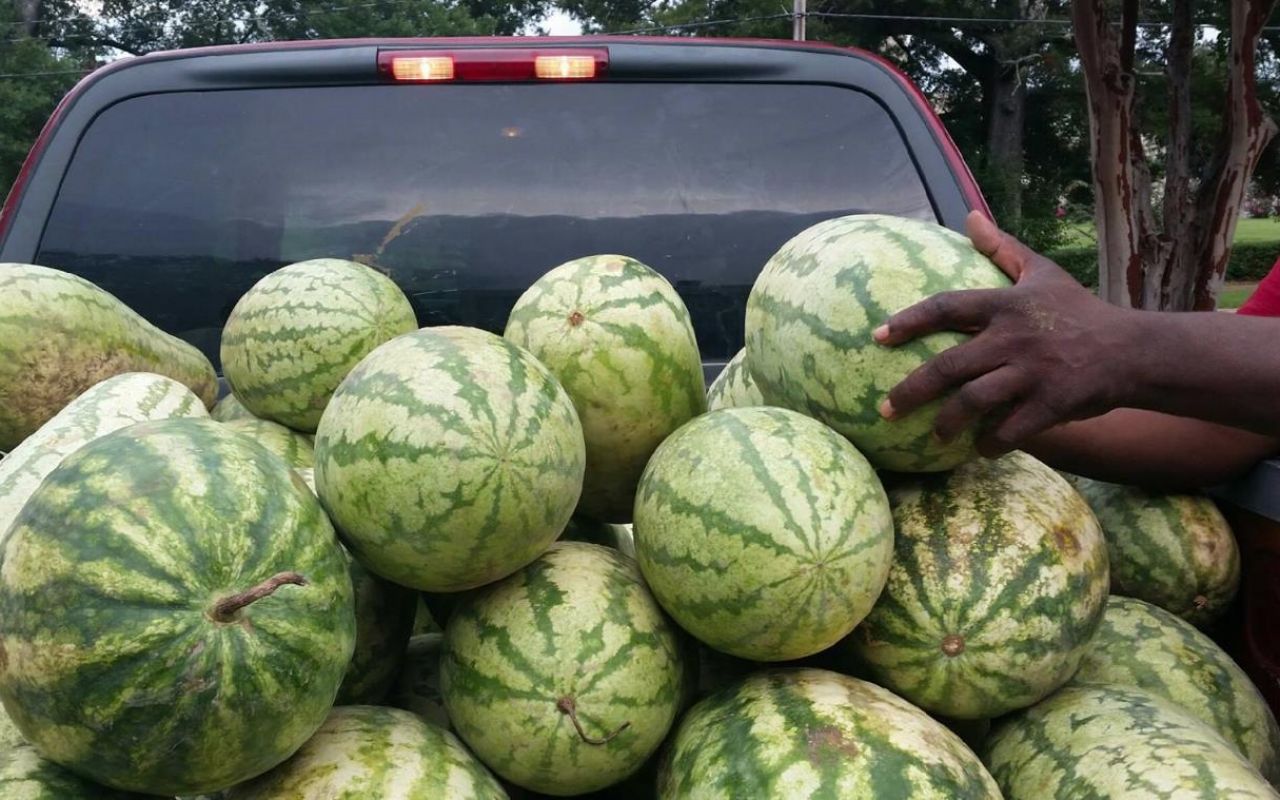
In trying times, when it feels like people are growing further and further apart, it is more important than ever to hold onto our cooperative roots and continue to build strong communities centered on community ownership and democratic control.
Towards the end of June, for the first time, Seward Coop will welcome Federation of Southern Cooperatives (FSC) board member and farmer Ben Burkett. Burkett will make the journey to Minnesota in a semi-truck, brimming with ripe, ready-to-eat red-seeded and seedless watermelons, to share with many local cooperative grocery stores including Seward, Eastside, River Market (Stillwater, Minn.), St. Peter (St. Peter, Minn.), and Hampden Park (St. Paul). A huge thank you is in order to Cooperative Partners Warehouse for handling local distribution. Register to attend the event here.

Seward Co-op and the Federation of Southern Cooperatives are both proud members of the Domestic Fair Trade Association. At this event, hear about efforts to build supply chains dedicated to fairness and equity.

FSC was founded in 1967, to assist in the economic development of Black farmers and the rural poor who had been discriminated against by the USDA and failed by the Farmers Home Administration (a program designed to improve the income of small farm owners but initially excluded Black farmers). In 1973, Bob Browne formally organized the Emergency Land Fund (ELF) out of concerns generated from the Black Economic Research Center around the pace at which land in the Black community was being lost and encroached upon. The peak of Black land ownership in the United States came in 1910, and there has been a steady decline ever since. Eventually, in 1985, the FSC merged with the ELF to become the Federation of Southern Cooperatives/ Land Assistance Fund.
FSC’s education program supports reclaiming traditional and ancestral knowledge of growing and providing food for families and communities—skills many farmers were forced to abandon due to the shift to industrial agriculture and a U.S. trade policy that economically favored corporate agriculture. Today, many FSC farmers grow their produce using integrated pest management (IPM) practices in an effort to reduce the use of synthetic chemicals. Avoiding conventional practices maintains soil and water health and improves the nutritional quality. IPM products are grown within a system of agriculture that coordinates the use of pest and environmental information with pest-control methods to prevent pest damage in the most economical fashion with the fewest detriments to people, property and the environment. This approach primarily relies on nonchemical means, such as controlling climate, food sources and building entry points.
This new relationship that Seward Co-op has forged with FSC has been a long time coming, and it is in complete alignment with our Ends Statement. Through this partnership, we will be able to build stronger relationships with more Black farmers and further diversify the regions of the country from which we source our produce during the off-season. Buying from fellow cooperative producers and farmers allows us to support cooperative economic development and build commonwealth.
Photos courtesy of Monica White